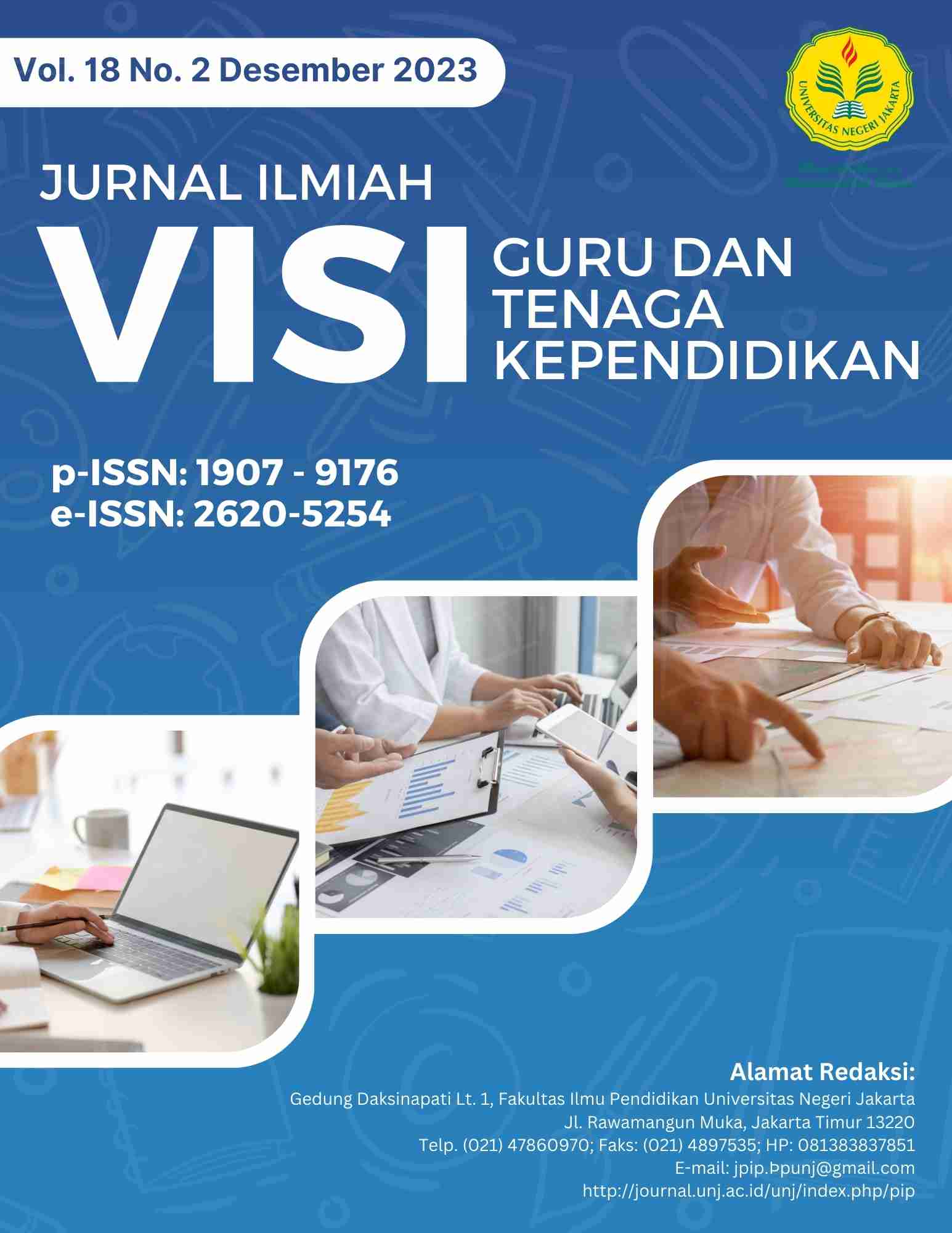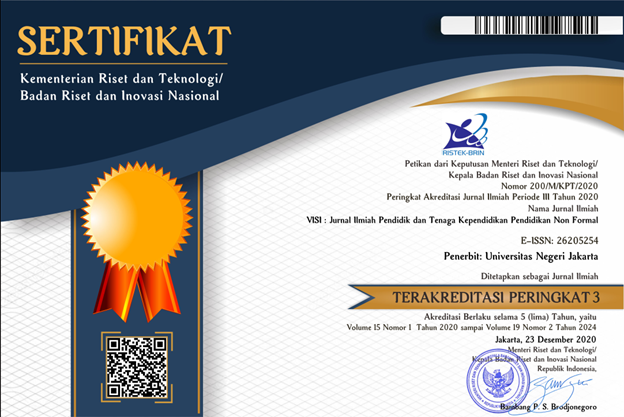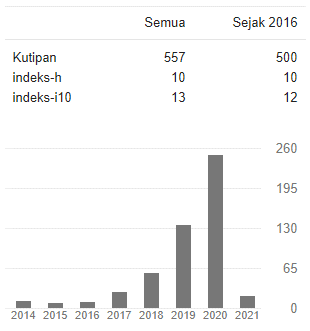Application of Auhtoritarian Parenting Patterns in Developing Children's Social Intelligence
DOI:
https://doi.org/10.21009/JIV.1802.1Keywords:
Authoritarian Parenting, Social Intelligence, Parenting PatternsAbstract
Parents have the right to raise children. It was found that several parents applied authoritarian parenting to develop children's social intelligence. This study aims to determine whether the application of authoritarian parenting by parents to their children can develop social intelligence. The method used is qualitative. The research was conducted in April-May, at SMP Negeri 92 Jakarta to be precise, with the research subjects consisting of six key informants and four key informants. From this study, it was found that the authoritarian parenting style adopted by parents came from internal factors (parental personality, parenting beliefs, parents' age, and parents' gender) and external factors (parents' education, socioeconomic status, and environment). Not all children who grow from authoritarian parenting have good social intelligence. Because two out of four students actually withdraw from the environment that requires them to interact. For parents who believe that applying authoritarian parenting can develop children's social intelligence, they need to pay attention to several things, such as increasing knowledge by participating in parenting training, providing fair care for each child, and living in a good social environment. In addition, the application of authoritarian parenting by parents with the aim of developing children's social intelligence should be reconsidered because there are several things that need attention, such as the child's mental condition.
Downloads
Published
How to Cite
Issue
Section
License
Authors who publish with this Journal agree to the following terms:
- Author retain copyright and grant the journal right of first publication with the work simultaneously licensed under a creative commons attribution licensethat allow others to share the work within an acknowledgement of the work’s authorship and initial publication of this journal.
- Authors are able to enter into separate, additional contractual arrangementfor the non-exclusive distribution of the journal’s published version of the work (e.g. acknowledgement of its initial publication in this journal).
- Authors are permitted and encouraged to post their work online(e.g. in institutional repositories or on their websites) prior to and during the submission process, as it can lead to productive exchanges, as well as earlier and greater citation of published works.
- Users/public use of this website will be licensed to CC BY-NC-SA Creative Commons Attribution-NonCommercial-ShareAlike 4.0 International License









